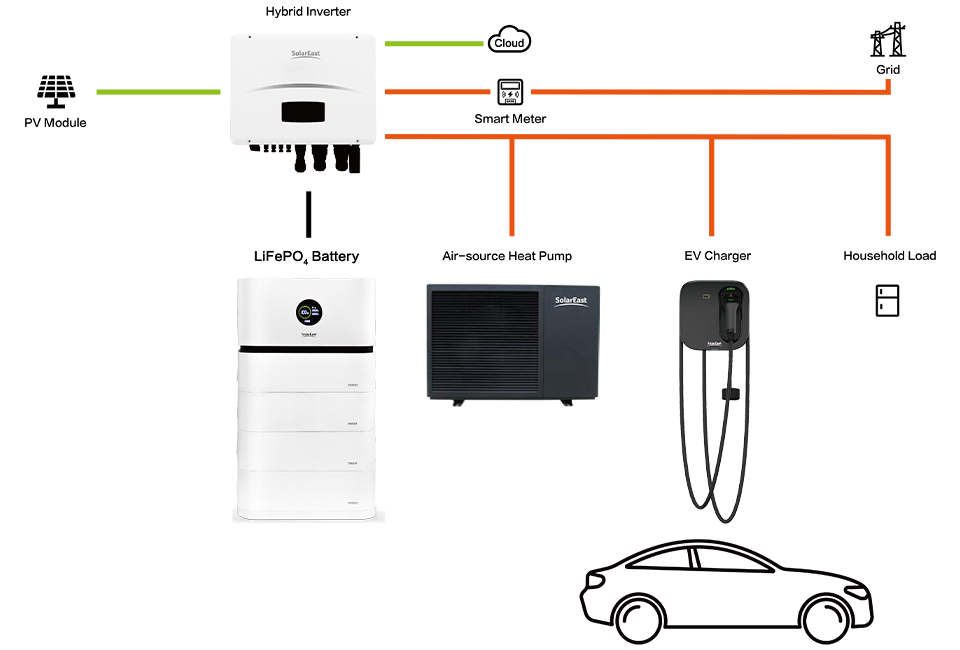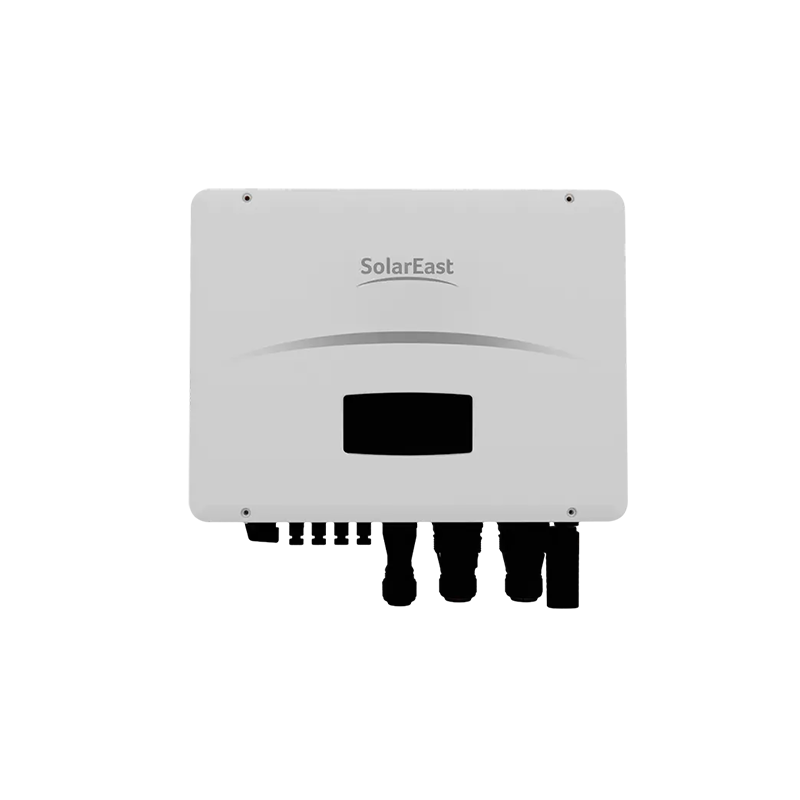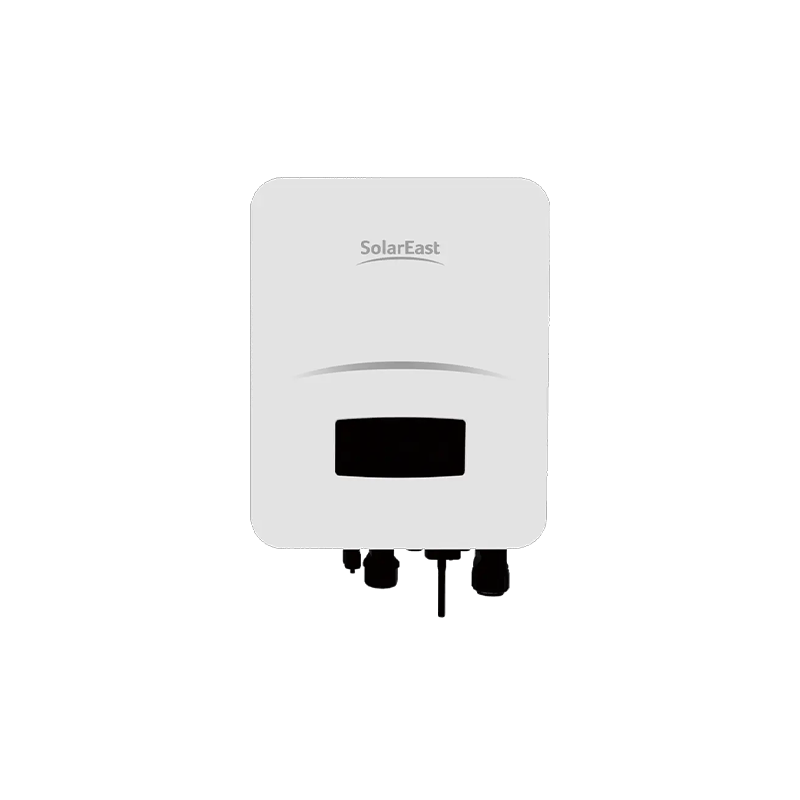In the rapidly evolving world of renewable energy, the demand for efficient and versatile energy solutions is at an all-time high. Did you know that upgrading to a solar hybrid inverter can significantly enhance your energy management? This article explores several compelling reasons to consider making the switch to a solar hybrid inverter, particularly for businesses looking to optimize their energy storage solutions.
What is a Solar Hybrid Inverter?
A solar hybrid inverter is a sophisticated device that combines the functions of a traditional inverter with the capabilities of a battery storage system. This technology allows for seamless integration of solar energy generation, battery storage, and grid power usage, providing a comprehensive energy solution for both residential and commercial applications.
1. Enhanced Energy Efficiency
One of the primary benefits of upgrading to a solar hybrid inverter is the improved energy efficiency it offers. By utilizing both solar power and stored energy, businesses can reduce their reliance on grid electricity, leading to lower energy bills. This efficiency is particularly pronounced in three-phase hybrid inverters, which are designed to handle larger loads and provide stable power for industrial applications.
2. Cost Savings on Electricity Bills
Investing in a single-phase hybrid inverter is also an economical option for residential applications to yield significant cost savings over time. By harnessing solar energy during the day and utilizing stored energy during peak hours, homeowners can avoid high electricity rates. This strategic energy management can lead to substantial reductions in monthly utility costs.
3. Reliable Power Supply
A solar hybrid inverter guarantees a reliable power supply - even during grid outages. With the ability to store energy, businesses can maintain operations without interruption. This reliability is crucial for industries that depend on continuous power, making the three-phase hybrid inverter an ideal choice for commercial settings.
4. Environmental Benefits
Switching to a solar hybrid inverter contributes to a more sustainable future. By reducing dependence on fossil fuels and lowering carbon emissions, businesses can enhance their corporate social responsibility profile. This commitment to sustainability not only benefits the environment but can also attract eco-conscious customers.
Household Integrated Energy Storage Solution
5. Scalability and Flexibility
Solar hybrid inverters offer scalability, allowing businesses to expand their energy systems as needed. Whether upgrading to a larger three-phase hybrid inverter or adding more battery storage, these systems can grow with your energy needs. This flexibility ensures that businesses can adapt to changing energy demands without significant overhauls.
6. Advanced Monitoring and Control
Modern solar hybrid inverters come equipped with advanced monitoring and control features. Users can track energy production, consumption, and storage levels in real-time through user-friendly interfaces. This data empowers businesses to make informed decisions about energy usage and optimize their systems for maximum efficiency.
7. Increased Property Value
Upgrading to a solar hybrid inverter can enhance the value of your property. Energy-efficient systems are increasingly attractive to buyers and tenants, making properties equipped with these technologies more desirable. This investment not only pays off in energy savings but can also yield a higher return on investment when it comes time to sell.
8. Support for Renewable Energy Initiatives
By adopting a solar hybrid inverter, businesses align themselves with global renewable energy initiatives. This commitment can lead to potential incentives, tax credits, and grants that support the transition to cleaner energy solutions. Engaging with these initiatives not only benefits your bottom line but also positions your business as a leader in sustainability.
Three-phase Hybrid Inverter & Single-phase Hybrid Inverter: What Are The Differences?
When considering energy storage solutions, understanding the distinctions between three-phase hybrid inverters and single-phase hybrid inverters is essential for optimizing energy management in your facility.
Three-phase Hybrid Inverters
Power Distribution: Designed for larger energy demands, three-phase hybrid inverters can distribute power evenly across three phases, making them ideal for commercial and industrial applications. They can handle higher loads and are capable of supporting larger equipment without overloading.
Efficiency: With the ability to manage unbalanced loads, three-phase inverters can operate more efficiently in environments where power consumption varies across phases. This results in better performance and reduced energy waste.
Capacity: Typically, three-phase inverters can support higher output capacities, making them suitable for businesses with significant energy requirements.
Single-phase Hybrid Inverters
Simplicity: Single-phase hybrid inverters are generally easier to install and are often more cost-effective for smaller applications. They are suitable for residential settings or small businesses with lower energy needs.
Limitations: These inverters can struggle with larger loads, as they are limited to a maximum output that may not support all appliances simultaneously. This can be a disadvantage in commercial settings where high power is required.
Flexibility: Single-phase systems can be expanded gradually, allowing them to scale their energy solutions as needed without a complete overhaul.
Why Choose SolarEast Solar Hybrid Inverter?
SolarEast offers high-performance single-phase hybrid inverters and three-phase hybrid inverters, which is an excellent choice for families or businesses looking to optimize their energy management.
Support for Time-Of-Use Optimization: This feature allows users to maximize savings by utilizing stored energy during peak demand times, ensuring cost-effective energy usage.
Configurable Operation Modes: The solar hybrid inverter includes a built-in anti-feed-in function, which prevents energy from being sent back to the grid, thus ensuring compliance with local regulations.
Smart Monitoring & Remote Firmware Upgrade: With advanced monitoring capabilities, users can track performance in real-time and receive firmware updates remotely, enhancing system efficiency and reliability.
Unbalanced Output Capabilities: SolarEast solar hybrid inverter supports 100% unbalanced output per phase and can handle 200% unbalanced output for systems below 10 kW, providing flexibility in energy distribution.
AFCI and Rapid Shutdown Ready: Optional features such as Arc Fault Circuit Interruption (AFCI) and rapid shutdown capabilities enhance safety, making the system compliant with stringent safety standards.
Conclusion
Upgrading to a solar hybrid inverter represents a strategic move for businesses seeking to enhance their energy management and reduce costs. With benefits ranging from increased efficiency and reliability to environmental sustainability, the case for making this upgrade is compelling.
As the demand for energy storage solutions continues to grow, investing in technologies like the solar hybrid inverter is not just a trend—it's a necessity for forward-thinking businesses. Looking for more information about top-quality solar hybrid inverters? Please feel free to contact sales@solareast.com!






